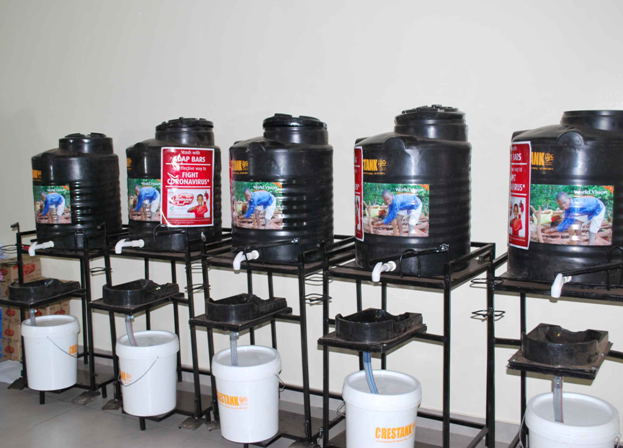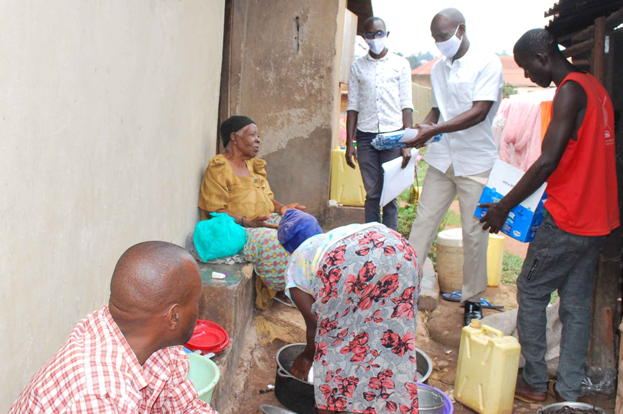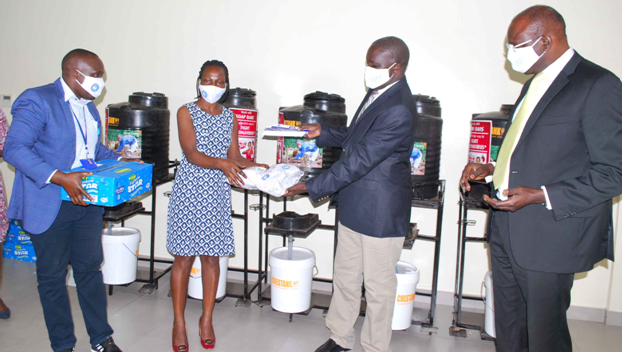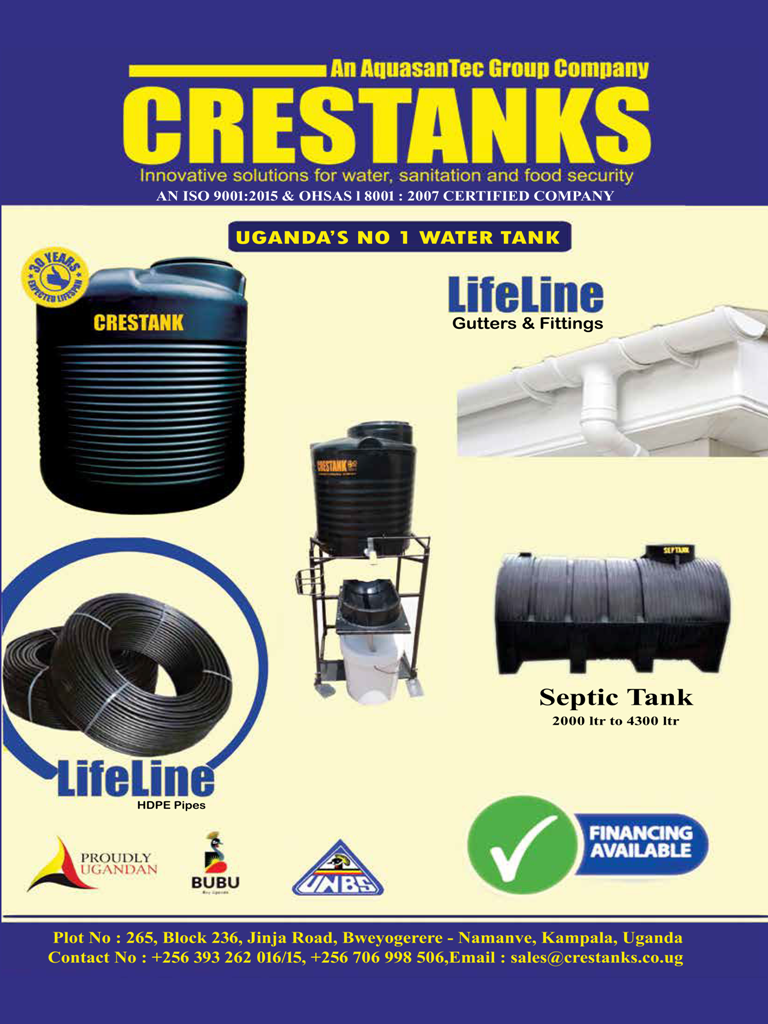In an effort to increase compliance of vulnerable groups to COVID-19 measures, the Water Supply and Sanitation Collaborative Council (WSSCC) has supported vulnerable groups in the Kampala Metropolitan area with hand washing equipment.
The items were handed over to the National Hand Washing Initiative (NHWI) of the Ministry of Water and Environment. Speaking shortly after receiving the equipment from the International Rescue Committee, which is the lead organization for the initiative, the Permanent Secretary at the Ministry of Water and Environment, Alfred Okot Okidi, applauded WSSCC for its efforts towards boosting the COVID-19 response of Kampala locals.
“Studies have shown that washing hands with soap and water significantly reduces the incidence of diarrhoea and acute respiratory infections among children under five by 47 per cent and 25 per cent respectively,” he said. He explained that in order to promote hand washing with soap as one of the means of preventing diarrhoea diseases, the National Sanitation Working Group (NSWG) came up with a National Hand washing initiative (NHWI) to spearhead the campaign.
The NHWI has got membership from several government ministries, including Water, Health, and Education, as well as development partners such as UNICEF and civil society organisations that implement WASH issues.
Okidi asked the general public to continue spreading the message on the importance of hand washing with soap after engaging in any activity that may have exposed one to faeces like visiting toilets or cleaning children’s bottoms before handling food.
“We should also encourage the population to practice improved sanitation and hygiene not only at their homes but also at the workplace, “he said.
The commissioner for Rural Water, Eng. Joseph Eyatu, asked the public to embrace the hand washing facilities rather than leaving them redundant at a time when they are most needed.
“We don’t want to see these facilities in front of your doors and homes not being used. We have seen them in hospitals when people are just bypassing them. They have to be used in order for them to become effective, “said Eyatu.

In terms of sanitation, Eyatu said rural pit latrines coverage stands at 77 per cent while in urban areas it stands at 80 per cent.
While distributing the items in one of the slums in Bunamwaya, a Kampala suburb, the Public Health Expert at the Water Ministry, Cate Namyalo, said people in slum areas seem to be finding it difficult to comply with COVID-19 measures.
“The majority of them are focusing on what to eat, forgetting about sanitation. This time we want to give them soap, washing containers and face masks to help them comply with government measures,” she said.
The sanitation initiative is being implemented by a sanitation collaborative council, which includes IRC, Unilever-Uganda, and World Vision.
The support that they offer is in form of providing information, educational material and communication through talk shows and radio announcements. They also offer hand washing facilities, soap and masks to high risk populations within the Kampala Metropolitan area who include traffic officers and other essential workers.
According to Joanita Mukasa, an employee of Unilever-Uganda, the public has responded well to the hand washing initiatives, resulting in the realisation of high consumption habits in hygiene products.
“We have seen a shift of about 50 per cent consumptions in the hygiene products, which has prompted us to be part of the team. So far, we have donated items worth Shs10 million, “she said.
The Disaster Management Manager at World Vision Uganda, Moses Odur, said his organization is currently working with UNICEF to provide psychosocial support to children who are in quarantine with their families.
“We are also working with different districts to provide livelihood support to vulnerable groups through the different taskforces so that such communities are helped to get out of the effects of COVID-19,”he said.

Odur revealed that World Vision Uganda will continue to provide materials like masks and hand washing facilities in health centres and in vulnerable communities to ensure that everybody can wash their hands and stave off the coronavirus.
“Our appeal is to deliver these materials properly in order to help children grow well. We also want to continue supporting access to information initiatives,” he said.
Odur explained that the organisation is currently working towards ensuring that farmers can access seeds so that other tragedies like hunger can be avoided.
Nakiwala Maria, a resident of the same zone, said masks were not a priority to her but since she received one freely in addition to soap, she can now be compliant to government programs to respond to COVID-19.
However, in spite of the efforts by the government and its partners, locals say there is need to do more to help them overcome their hygiene and sanitation challenges. The LC1 chairman of Bunamwaya Mirembe zone, John Bosco Tamale, said his residents had decided not to implement government measures due to lack of support.
“As much as they know the danger of COVID-19, they cannot divert money for food into masks or hand washing soap,” he said.



















